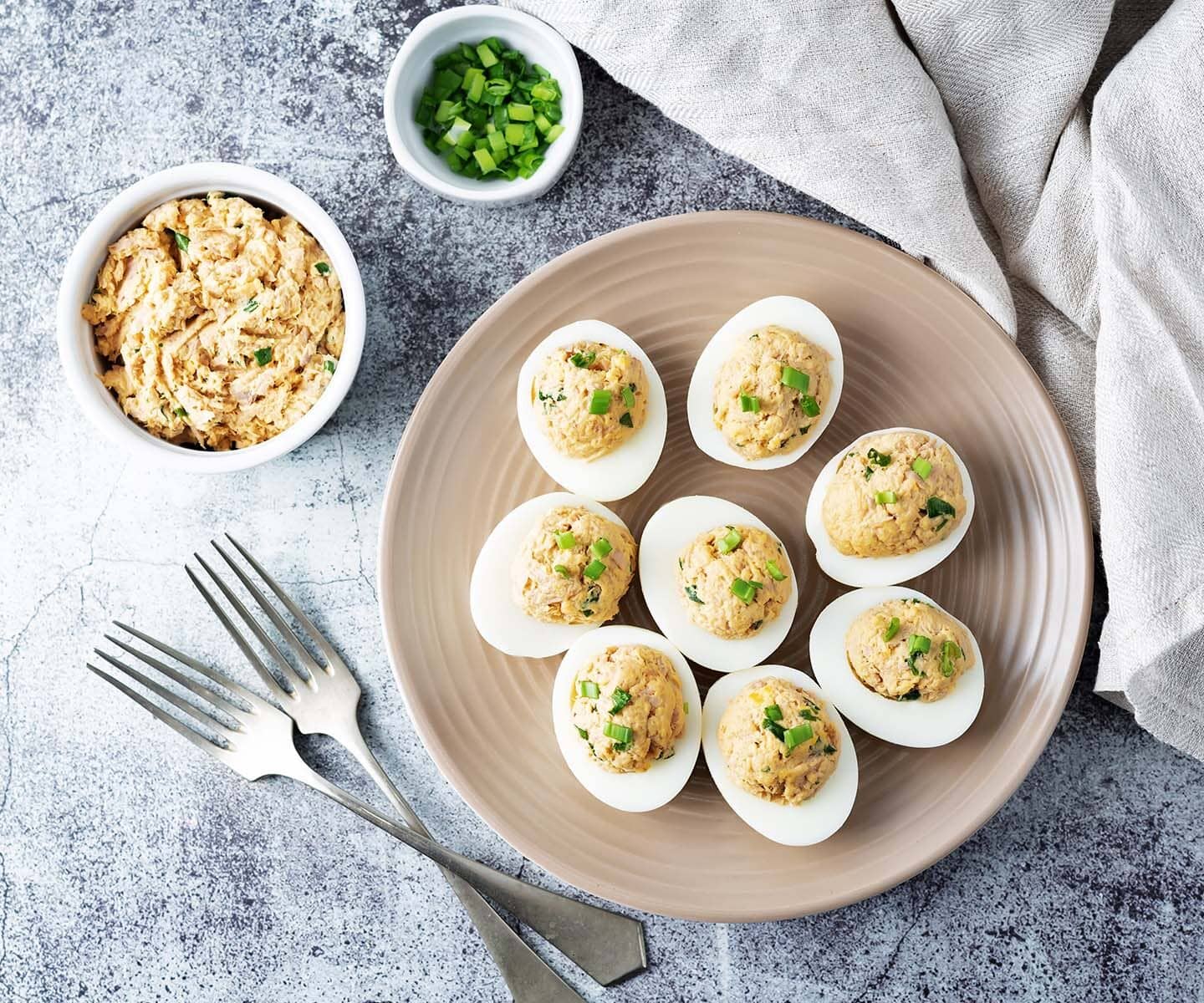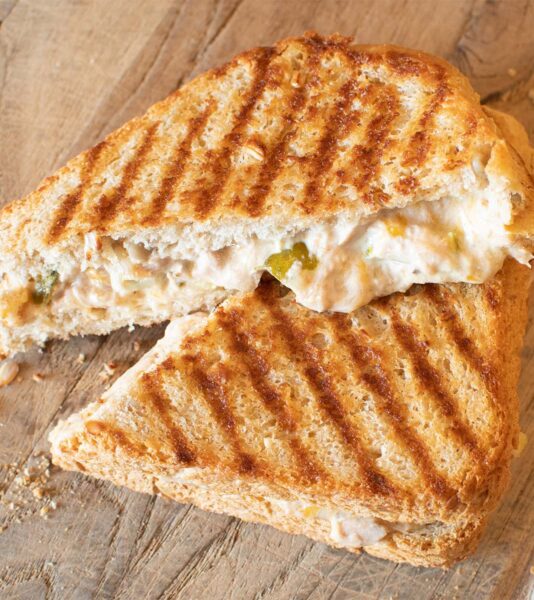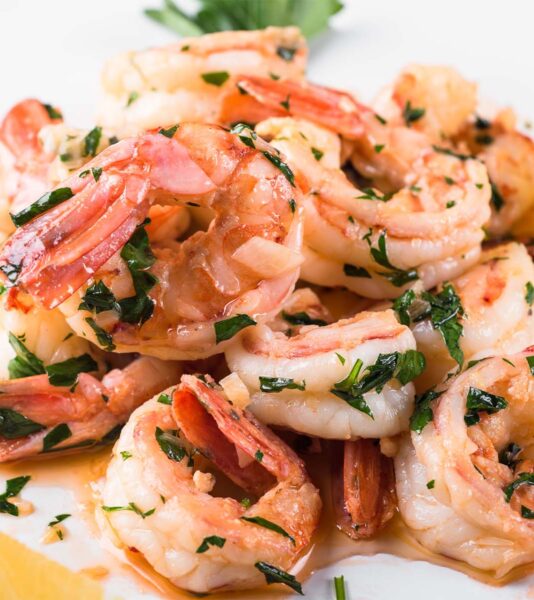Deviled eggs have been a favorite and economical comfort food for decades. “Nowadays, restaurants are coming up with some truly wild takes on this classic,” reports Tasting Table. Many involve seafood.
According to research by McCormick, almost two-thirds of American consumers plan to enjoy deviled eggs for Easter. Mustard, paprika, and dill are popular seasonings they say, and many seek out other protein add-ins, such as smoked salmon or crab meat. Tasting Table says, “adding a few extras like vinegar and hot sauce can kick up the flavor.”
Eggs pair up with seafood for healthy nutrients
Despite their bad rap of the past, eggs are considered a nutritious food by nutritionists today. “One egg gives you 6 grams of protein and they’re packed with vitamin A, vitamin E, vitamin B12, vitamin B9 (folate) and lutein,” explains Cleveland Clinic. They also say, “Studies examining the fatty acids in egg yolk have shown that yolks have anti-inflammatory properties, antioxidant properties, help with memory improvement and provide cardiovascular protection.”
Meanwhile, seafood is an excellent source of protein, vitamins, minerals and omega-3 fatty acids. Salmon and tuna varieties are among the top sources of these essential fatty acids that confer a wide range of health benefits. (See Advances in Seafood Nutrition for more information.)
Pairing up eggs with seafood not only delivers a whopping dose of nutrients—it’s tasty, too!
Tuna deviled eggs win high marks
Chicken of the Sea’s culinary team hosted a seafood tasting event at Pines Village Retirement Community in Indiana, asking residents to taste a rate a variety of seafood dishes. Tuna deviled eggs came out the number-one favorite. Several residents commented on the nostalgic comfort factor—“just like I enjoyed growing up.”
Inventing seafood deviled egg recipes
The possibilities for seafood deviled eggs are endless. You can invent your own in three steps:
- Choose your seafood: Ready-to-use, convenient add-ins include shelf-stable tuna, salmon, or specialty seafood like sardines or crab meat.
- Choose your deviled egg base: Mayonnaise is traditional, but you can also use sour cream, cream cheese, or even plain yogurt. Where fat reduction is your goal, opt for reduced-fat or fat-free versions. Olive-oil pesto also makes a lively base with tuna.
- Choose a flavor profile: Common additions to a seafood deviled eggs are capers, diced red onions, lemon juice, black pepper, Dijon mustard, chives, and/or dill. For a Mediterranean take with tuna, consider hummus, plain yogurt, sundried tomatoes, diced red onions, feta cheese, and/or chopped olives. Horseradish is a common addition to seafood deviled eggs. Just a little bit goes a long way to liven up the flavor profile.
Taste of Home recommends incorporating crabmeat, sweet pickle relish, sweet red pepper, into the mayonnaise-egg yolk mixture for a satisfying crabmeat deviled egg. Curry powder is another interesting seasoning that combines well with plain yogurt and tuna for a warm, deep flavor profile. A Southwestern-style deviled egg can use tuna or salmon with incorporation of sour cream and avocado, hot sauce or minced hot peppers, shredded Colby-Jack cheese, and a topping of salsa with a cilantro leaf. For salmon deviled eggs, cream cheese, pickle relish, lemon juice, capers, and dill are all classic additions. If you are not using smoked salmon, you can add a drop of smoke seasoning to the mixture.
Seafood deviled eggs make a satisfying, snackable treat for your customers at any time of year—and are in high demand for Easter. They work well for appetizers and small plates and adapt well to flights. Why not join the trend and try some new twists on your menu this season?








